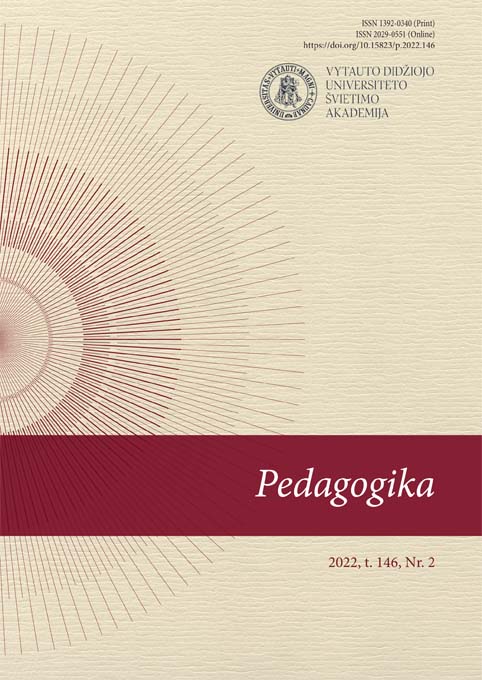Mokymosi sunkumų patiriančių 5–8 klasių mokinių atsitraukimo fenomenas ir jo įveika mokantis nuotoliniu būdu COVID-19 pandemijos sąlygomis: mokytojų ir mokinių patirtys
Withdrawal Phenomenon and Coping Mechanisms in Students of Forms 5-8 Experiencing Learning Difficulties, in Remote Learning During COVID-19 Pandemic: Experiences of Teachers and Students
Author(s): Ona Monkevičienė, Alvyra Galkienė, Lina Kaminskienė, Lina Miltenienė, Rita MelienėSubject(s): Education, Inclusive Education / Inclusion
Published by: Vytauto Didžiojo Universitetas
Keywords: COVID-19; Withdrawal phenomenon in learning; Overcoming learning difficulties; Lower secondary education; Inclusive education;
Summary/Abstract: The article presents a novel phenomenon, namely, the phenomenon of withdrawal in the students of forms 5 to 8 with learning difficulties when learning remotely under the critical conditions of COVID-19 pandemic. The phenomenon was revealed through focus group discussions with the teachers of forms 5 to 8, educational assistance professionals, and school leaders from 23 schools (n-175), as well as through the material of depersonalized deliberations of the students, provided by the teachers. The process of quality content analysis of the research material highlighted the phenomenon of student withdrawal when learning remotely, and its following stages: partial or episodic selfremoval from the lesson; muting; invisibility; confusion; demotivation; apathy; loss of social connections; exhaustion; helplessness, and complete withdrawal. The following external reasons prompting the emergence of the withdrawal phenomenon in students under the critical conditions of COVID-19 pandemic were identified: digital exclusion, non-inclusive traditional teaching, lack of enabling effect on the students, learning barriers that exceed their abilities, demotivating experiences of failure, unfavourable family environment, social and even physical isolation, and online bullying. The following internal factors favourable were for the development of the phenomenon of withdrawal emerged: limited mood management skills, lack of self-confidence, lack of self-acceptance, critical attitudes. The following ways of overcoming the withdrawal phenomenon were revealed: the organization of a remote learning process that involves the students and is based on the students’ active participation.
Journal: Pedagogika
- Issue Year: 146/2022
- Issue No: 2
- Page Range: 5-38
- Page Count: 34
- Language: Lithuanian

